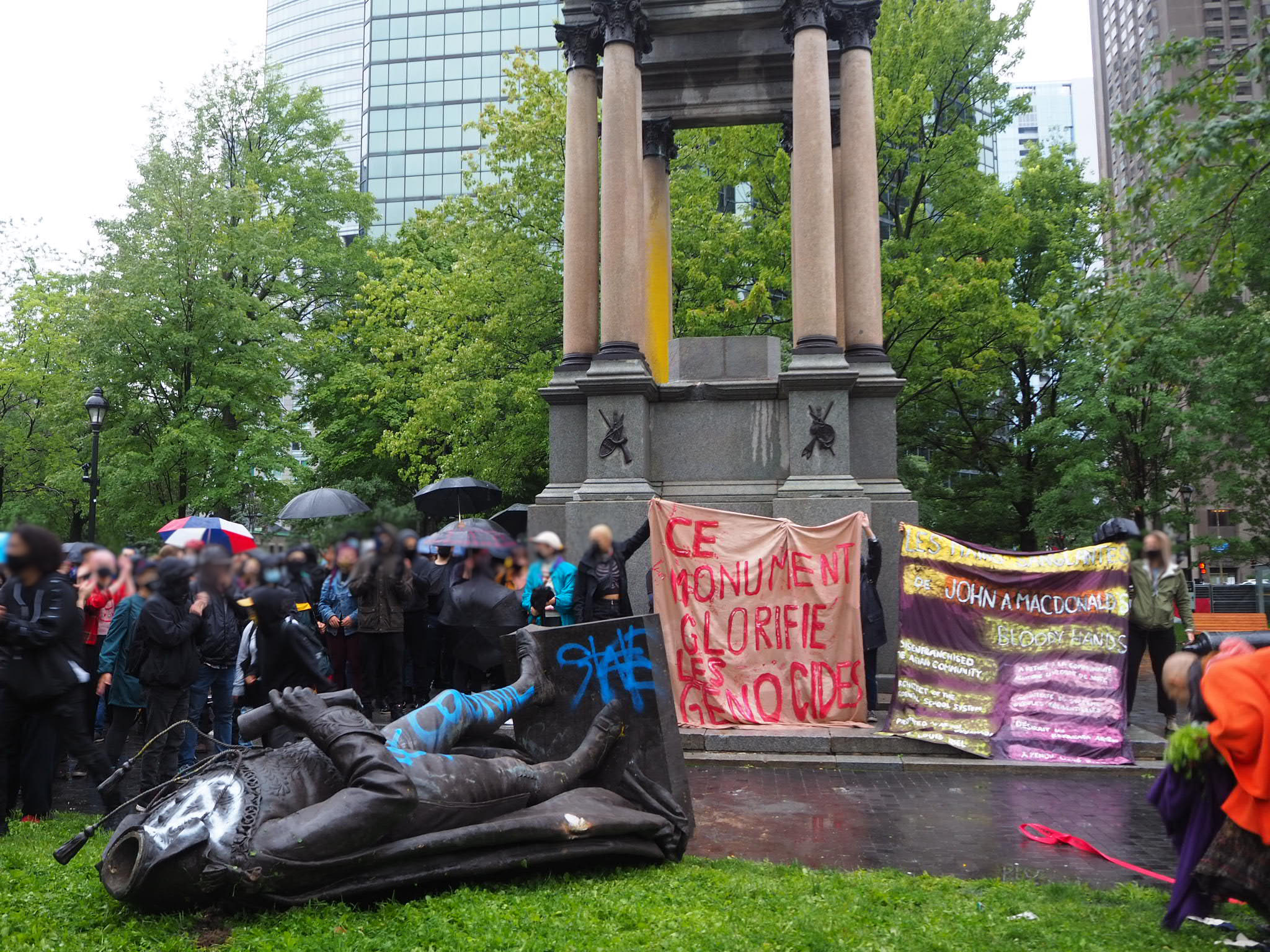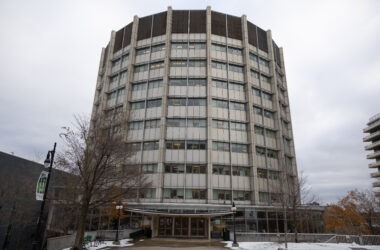Over 200 people marched through the streets of Montreal on Aug. 29, calling for the defunding of the Service de police de la Ville de Montreal (SPVM) in a protest organized by the Montreal wing of the BIPOC Liberation Collective.
The recent police shooting of Jacob Blake, an unarmed Black man in Kenosha, Wisconsin, sparked renewed efforts in Montreal to protest racialized police brutality. Speakers at the protest highlighted the SPVM’s murders of unarmed Black and Indigenous civilians, including the 2008 killing of Fredy Villanueva.
The energetic crowd was undeterred by weather that wavered between a light drizzle and heavier downpour. Ahead of protestors, police cars and neon-clad police officers on bikes patrolled the area, clearing the streets of traffic. Masked protestors chanted “Black Lives Matter,” “defund the police,” and “abolish the police,” and were often met with honking cars and cheers from passersby.
For over two hours, the crowd marched peacefully along Sherbrooke Street and west on Saint Catherine Street, where officers in riot gear blocked the street near the Montreal Police Neighborhood Station #20. Protestors continued west on Boulevard René Lévesque before gathering in Dorchester Square, where organizers gave speeches pushing for the reallocation of police funding. As the crowd reached Dorchester Square, a group of protestors toppled and spray-painted the statue of Canada’s first Prime Minister John A. Macdonald. There were no reported injuries or arrests.
During the march, one activist with the BIPOC Liberation Collective spoke about the importance of reinvesting in communities as a means to reduce crime. He lauded the crowd’s activism and pushed participants to support BIPOC members in their own communities.
“I’m not going to sit around and watch more lives be lost and more lives be destroyed, because just one is too many,” he said. “And as a community we should understand that, and not be desensitized to peoples’ struggles and not dehumanize groups of people. Because when people become disenfranchised from our communities, [they] resort to the things that we don’t want in our society. And when we hold ourselves accountable for that and we realize that we are all part of the process [.…] We realize that it’s all our jobs.”
Another activist bluntly assessed SPVM funding.
“Why is education not funded as much as the police?” he asked. “Why does education keep getting defunded [and] public schools beg for subventions [while] the police are there with almost tanks in protests. Why the fuck is this happening?”
Jessica Quijano, Missing and Murdered Indigenous Women Coordinator at the Native Women’s Shelter of Montreal, expressed frustration over her interactions with the SPVM during her work. She explained that she often needs to push for police to open investigations into missing and murdered Indigenous women.
“How is it that a community has to hire someone like myself so that the police are supposed to do what they are paid to do,” Quijano said. “This is all intentional. The genocide of Indigenous people is intentional [in] Canada, [which] actually does not act. We know what needs to be done. We had an inquiry with 233 recommendations and the government has done none of them.”
Quijano denounced systemic racism in Canada’s criminal justice system.
“The Indigenous population here in Canada is less than five per cent, [but in our prisons], 25 per cent of men [incarcerated] are Indigenous and 40 per cent of women [incarcerated are Indigenous],” Quijano said. “That is a travesty. If you want to think about the U.S., how they have an issue with the prison industrial complex, we have the same thing here. We are no different than the United States.”
Following the speeches, a handful of protestors, dressed entirely in black, climbed the John A. Macdonald statue, covering it with banners detailing Macdonald’s past. While John A. Macdonald was one of Canada’s founding fathers, he established the residential school system, which forcibly separated over 150,000 First Nation, Inuit, and Métis children from their families between 1880 and 1996. The Truth and Reconciliation Commission of Canada, published in 2015, called the residential school system a “cultural genocide.”







